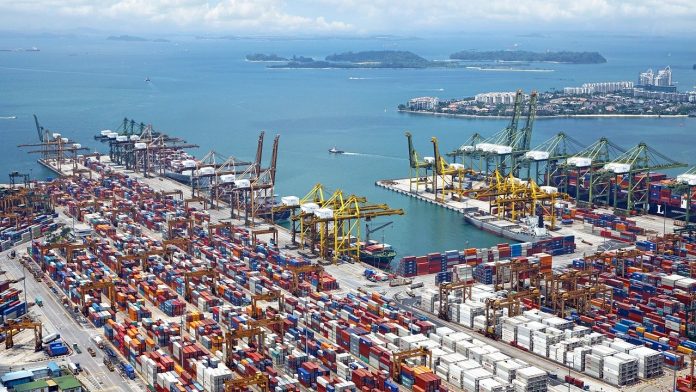During the past months, the coronavirus crisis escalated into a global pandemic. It does not only claim lives. With flights stranded, supply chains disrupted, business activities halted, financial market rattled and economic growth forecast decisively reduced, the Covid-19 outbreak is what might be the most fundamental stress test for the globalization trend in decades. Media pundits, business experts and academics are discussing or foretelling the possible demise of globalization: “The Post-Coronavirus World May Be The End Of Globalization”, “Will the Coronavirus End Globalization as We Know It?”, and “The Coronavirus Is Killing Globalization as We Know It”, or its post-Coronavirus future: “Coronavirus and the Future of Globalization”, “Coronavirus Pandemic Puts Globalization in the Crosshairs”.
However, one may also argue that the globalized international system will indeed survive the current Covid-19 crisis. Firstly, the historical track record shows the revival and resilience of the forces of globalization despite severe disruptions like 1918 Spanish flu, two World Wars, and the Great Depression. None of these episodes disconnected the world once and for all, but, on the contrary, accelerated its interconnectedness. Secondly, amid difficult times of the outbreak, even if some governments are imposing export bans and some others are shifting blames regarding origin of the virus, they have not given up calling for global cooperation and have not hesitated to help each other. Japan, for instance, offered medical masks to China, and vice versa; South Korea is exporting test kits to the U.S.; Taiwan, despite imposing a ban on mask export in initial period of the outbreak, is donating masks to the U.S. and the EU; President Trump has ordered officials to help Italy; China is sending out medical teams to every corner of the globe, etc.
Therefore, the “death” of globalization depends on its definition. When it is understood to refer to the discontinuity of international supply chains due to social restrictions and economic disruption, it might be relevant, at least for now. However, since most countries have not closed their doors completely and are still cooperating amidst the crisis, it is premature to judge that the forces of globalization are diminishing.
Despite this, the survival of globalization does not necessarily ensure that it remains as what we understood it in past decades. Even if the ongoing outbreak does not terminate this wave of globalization per se, it is more likely to reshape it along the cleavage of values based on state-market ties (degree of governance intervention) and the level of acceptance of universal values (rule of law, human rights, willingness to follow international norms).
Since the collapse of the Soviet Union, the global capitalists have been exploring nearly every corner of the globe for profits regardless of differences in values. Multinationals in developed economies outsourced production lines to authoritarian developing countries which have strength in effectively imposing social control and maintaining political stability but are characterized as failures to abide by international standards in terms of rule of law, labor’s rights, environmental protection. This is why some argue that the global capitalist system after the end of Cold War led to a “capitalism-democracy disjuncture” where “democracy depends on capital while capital depends on effective authoritarianism”, contending that “globalization is against democracy”. For the sake of profit, interest and market resources, capitalists have the incentive to tolerate the absence of values, which emboldened authoritarian regimes.
Now the Covid-19 pandemic may teach them a hard lesson. If the current globalization is remodeled based on values, the transformation may turn out to be the process of “de-Chinanization”. The propensity of authoritarian China to cover up and mishandle the initial outbreak caused the crisis to deteriorate. Subsequently, the Chinese government swiftly adopted restrictive measures to prevent the spread of the virus. Mandatory lockdown of the epicenter city Wuhan and the entire province and forced business closure in the “world factory” paralyzed global supply chains, which exposed the deficiency of centralizing most production lines to a single authoritarian territory. Furthermore, it might be more dangerous and self-defeating to place manufacturing lines of life-saving medical supplies into the hands of an authoritarian government prone to weaponize medical products amid global public health crisis by threatening to control pharmaceutical export to “plunge the U.S. into the mighty sea of coronavirus.”
These downsides of pursuing over-dependency on authoritarian China for manufacturing and market resources are prompting global capitalists to rethink their value-free investment strategy and reconsider whether China, despite its competitiveness in political stability, effective governance, skillful and sophisticated labor forces, and enormous market resources, remains an ideal destination to house manufacturing facilities. Some countries are pondering offering businesses financial packages to exit. The White House National Economic Council Director Larry Kudlow is suggesting payment of “moving the moving cost” to help American companies leave China while Japan announced offering $2.2 billion of its economic stimulus package to Japanese manufacturers to diversify supply chains either by relocating from China to other countries or moving them back home.
Although it is tempting for developed economies to de-couple with China to minimize the systematic risks associated with authoritarianism, it is problematic to interpret these attempts as warning signs for the immediate decline of China’s status as the world’s manufacturing hub. As China has been deeply-engaged and closely-intertwined with the world economy, it becomes a “too-big-to-be-cut-off” economy. Given this, a quick de-coupling is too expensive to be feasible, especially amid the shock from the pandemic, thus more of a wishful thinking rather than a reality. Therefore, “a long and hard de-coupling” might be a more realistic scenario. Even then, considering China’s edges in enormous market and highly-skillful and sophisticated labor forces in some segments, the complete pull-out of production lines may not materialize. The developed economies may choose an approach of “selective de-coupling”, where production of some essential high-tech and strategic products (including medical supplies) are moved away from China, but manufacturing lines of non-essential products (including consumer goods) are more likely to remain.
In conclusion, although “end of globalization” has been a popular cliché amid the Covid-19 outbreak and some evidence pointed in this direction, it is equally important that some other realities point to the opposite. Instead of terminating globalization, the Covid-19 outbreak may possibly transform the current globalization. Due to the lessons learned from the outbreak, global capitalists in Western economies re-examine their profit-only approach of centralizing supply chains in authoritarian China and diversify them to other like-minded economies, so the value-free globalization of past decades may be reshaped into a value-driven one. Even so, given that China remains well-positioned in terms of its manufacturing strength accumulated in past decades, a gradual and partial relocation seems more possible, feasible and visible than immediate cut-off and complete investment exodus.
The views and opinions expressed in this article are those of the author.

Keyu Chen served as financial translator for Goldman Sachs, J.P. Morgan and Deutsche Bank. He holds M.A. in international journalism and communication from Beijing Foreign Studies University. He’s interested in political communication, comparative politics and international relations.


